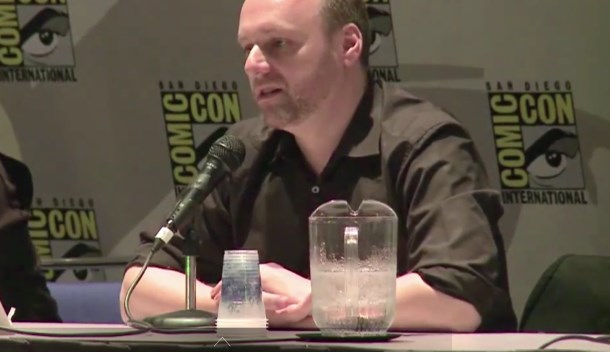Quantic Dream issues statement on toxic workplace court case
The developer is declaring victory after three years of legal back-and-forth.

In 2018, French press outlets Canard PC, Le Monde, and Mediapart published articles about the work culture of Quantic Dream—the studio responsible for games like Fahrenheit, Beyond: Two Souls, Detroit: Become Human, and Heavy Rain. According to Canard PC's investigation (link contains NSFW images), Quantic Dream employees were subject to a "long crunch pattern" on each game, and one manager created and shared "600 photomontages of dubious taste" featuring the faces of staff edited into the bodies of others, including porn stars and a Nazi—harassment that led to the departure of the entire IT department and a court case being brought against the studio.
After years of rulings and appeals, on April 7 the Paris Court of Appeals issued a decision in Quantic Dream's favor. Quantic Dream published a statement declaring this final proof of "The absence of a 'toxic atmosphere' or any kind of discrimination in the studio", and that this was backed up by statements made by Staff Representatives. It also declared that there had been "numerous inspections by government services in recent years", which failed to find "irregularities in the management of the company and/or its contracts".
The statement also claims the testimonies of employees and ex-employees who denied the accusations "were violently attacked by people acting under false identities" as part of an organized campaign. "More than 10,000 tweets were sent in a few days by a single account on Twitter, with the aim of getting the allegations against the company to the top of the search engines. There is evidence that a very small number of people are behind these actions, which are aimed at deliberately tarnishing the studio's image and damaging its team."
French union Solidaires Informatique recently issued a press release of its own addressing statements made by Quantic Dream founder David Cage in an interview with IGN. Discussing the opening of a new branch based in Montreal, Cage declared, "all allegations about our studio have been indisputably proven wrong", which Solidaires Informatique disputed, describing it as part of an effort by Quantic Dream "to get its public image under control" and a pattern of "silencing all dissident voices."
The biggest gaming news, reviews and hardware deals
Keep up to date with the most important stories and the best deals, as picked by the PC Gamer team.

Jody's first computer was a Commodore 64, so he remembers having to use a code wheel to play Pool of Radiance. A former music journalist who interviewed everyone from Giorgio Moroder to Trent Reznor, Jody also co-hosted Australia's first radio show about videogames, Zed Games. He's written for Rock Paper Shotgun, The Big Issue, GamesRadar, Zam, Glixel, Five Out of Ten Magazine, and Playboy.com, whose cheques with the bunny logo made for fun conversations at the bank. Jody's first article for PC Gamer was about the audio of Alien Isolation, published in 2015, and since then he's written about why Silent Hill belongs on PC, why Recettear: An Item Shop's Tale is the best fantasy shopkeeper tycoon game, and how weird Lost Ark can get. Jody edited PC Gamer Indie from 2017 to 2018, and he eventually lived up to his promise to play every Warhammer videogame.

